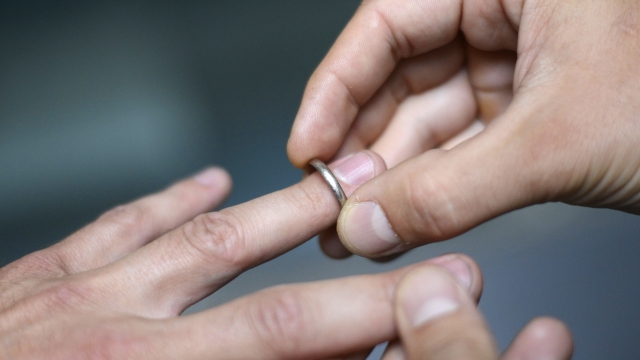Having sex is a big commitment. It comes with its own set of responsibilities and requirements, and it’s hard to know what all you really need to know. Luckily, we’ve collected a few facts that might make your sex life just a little bit sweeter.
1. You’re probably not being tested for every STD.
This is a scary thought: If you ask to be tested for “everything”, you’re probably only being tested for the most common things. Herpes, HPV, and syphilis are often not tested for unless asked for specifically, or if you exhibit the symptoms associated with that disease. If you’re concerned, make sure you ask about everything. The big ones are chlamydia (which often shows no symptoms), gonorrhea, syphilis, HIV, herpes, and trichomoniasis. (If you’re unfamiliar with that last one, you can get a little more information here.)
When you make this request, your doctor will probably ask about your sexual history and specific risk factors you may have. Even if it’s embarrassing, it’s absolutely necessary that you are 100% honest during this discussion – that’s the only way your doctor will know if the test is really necessary. The CDC has produced a handy guide to help you know what you need to know.
(And, of course, you should be practicing safer sex as well as being tested – even if you’re monogamous. It might take away a little of your spontaneity, but it’ll also take away some of the risk of horrible infections.)
2. Cigarette smoking leads to a reduced genital response.
As a smoker myself (yes, I know how bad it is), this one makes me pretty sad. I mean, my orgasms are pretty good, but science says they’d be better if I quit smoking. This has something to do with the concentration – nicotine affects your blood pressure, which makes it more difficult for the blood to rush into your sensitive bits. If you are a smoker, and you have no intentions of quitting (which you probably should anyway), try to refrain from nicotine use directly before sex, and see if it makes any difference for you.
3. Drunk sex isn’t very good.
This one seems like it’s not true – many of us get incredibly aroused once we’ve downed a few drinks. But alcohol is a depressant, and that means it will reduce the responsiveness of your sensitive regions, making them… Well, less sensitive. Just because you think you want it more doesn’t mean you should go through with it.
(If you must get it on while you’re drinking, it’s much better if you stop when you’re buzzed. The more you’ve had to drink, the lower your inhibitions will be, but the less likely you’ll have a satisfying outcome. Save it ‘till the morning after.)
4. Sex, in general, is really good for you.
While orgasms definitely have their own benefits, research shows that there are added bonuses associated with regular lovin’. Orgasms can help lower your blood pressure, eliminate the stress, shut down the worst parts of a migraine, and even help to boost your immune system. As if you needed another reason to get naked with your woman, am I right?
5. Sex burns calories – even if you’re just receiving.
The exact number of calories you burn will depend on the specific acts you’re participating in, but being an active receiver (that is, not just lying there) burns about 3 calories per minute. More active sex burns even more calories, of course – so get creative!
Additionally, sex as an exercise is great. It increases your bond with your partner and can help keep you in shape – so if you’re self-conscious about your naked body, getting it on with your lover can actually help fix the problem. It’ll take time, of course, and it’s probably best if it’s not your only form of exercise, but if you’re not sure where to start, it’s probably the most fun workout you’ll ever have.
6. Your brain reacts similarly to sex as it would to drugs or candy.
The pleasure center in your brain, responsible for determining positive activities, goes completely haywire when you’re getting freaky. It’s actually been shown that stimulating the nipples lights up the same part of your brain as genital stimulation – for both men and women. This confirms what we’ve secretly always known: The nipples should definitely get some action, too.
More than just that, though, is the fact that the part of your brain that controls your fear response pretty much shuts down while you’re experiencing the waves of pleasure. This particular effect can help explain why some people have fetishes involving things that might otherwise be off the table – such as choking, biting, and butt-smacking.
7. Men fake orgasms, too.
This is one of those things that many women think they’ve got a monopoly on. You don’t. Approximately 30% of men polled by Time Out New York said that they had faked an orgasm. Overall, this number might be smaller – it’s difficult to gauge the exact numbers on such a sensitive issue.
8. Many people who fake orgasms do it for really sweet reasons.
In a recent study (which focused primarily on heterosexual women – although we might not be as different as we think), many reported that they had faked orgasms in an effort to protect their partner’s feelings. Others said that they had hoped it would increase their own arousal, as some type of self-fulfilling prophecy – willing a fake orgasm to become a real one.
Other people had less selfless reasons. Some said that they faked it because they had insecurities. Some even reported that they faked an orgasm as a way to hurry up and get it over with. We’d prefer to keep things real, though – and your partner would probably prefer if you did, too.
9. It’s OK if you don’t get off every time.
In fact, it’s completely normal, and we need to learn how to accept that, as a society. On average, a woman will orgasm about two thirds of the time (although we expect that number is a little higher for lesbians, wink wink). Men, on the other hand, will orgasm about 91% of the time.
Realistically speaking, you shouldn’t put so much of a focus on orgasm in the first place. Sex is like pizza – even when it’s bad, it’s still pretty good. Understand that it’s not always going to be a home run – sometimes you’ll just bunt it to first base. Consider yourself lucky if this number seems low for you – you’ve got a good thing going with your partner!
10. Communication makes an orgasm more likely.
Women who talk dirty during the act are more likely to get off – as are those who mix things up. If your partner seems to be having a hard time getting there, try switching it up. If you’ve been giving mostly oral stimulation, consider trying penetration for a while. If your partner is into anal play, try that too. If you really want to blow her mind, you can always add more into the mix.
For some people, it might be easier to orgasm if you have a loving and emotionally intimate relationship with your partner. This can make the communication come a little easier, too, so don’t hold back! The more detailed your sexual conversation is, the more likely your partner is going to get it just right, so feel free to lay out all your desires on the table. (For me, personally, hearing my partner moan while pleasuring me is a huge turn-on, too, but only if it sounds natural. I don’t advise faking noises, if you’re the quiet type, but make sure you’re not stifling them, either.)
11. Lube is nothing to be ashamed of.
Sometimes, we associate artificial lubrication with a lack of arousal – but there are a million reasons why a woman might not be as wet as she could be. While there are definitely some people who use lube to help them when they’re not particularly aroused, some women just don’t produce enough moisture on their own. It doesn’t mean they don’t want it – it means their body isn’t cooperating with them.
Even for those who do get sufficiently wet before sexual play, using lube can increase your sexual satisfaction. Friction definitely has its place in sexual fun, but so does slipperiness – and lube provides that slipperiness. If you’ve never incorporated lube into your routine, consider giving it a shot – you never know what you could be missing!
12. Moderate exercise can put you in the mood.
As if exercise didn’t already come with a slew of great benefits, it can actually help put you in the mood, too. (Surprisingly, this is even true if the woman’s libido has been diminished due to antidepressants.) It also helps to boost endurance, strength, and confidence, all of which can help make the entire sexual experience more fulfilling for all parties involved.
An estimated 10% of women can actually get so turned on by exercise that they have what is referred to as a “coregasm”. Something about the way the abdominal muscles are engaged leads to a heightened state of arousal, and even with women who can’t experience a full-blown orgasm this way, engaging your core during your normal sexual activities can help you boost your enjoyment, leading to a stronger orgasm than usual. Give it a try!
13. If your eventual goal is penetrative sex… Don’t start with it.
We’ve already said that a variety of sexual acts are necessary for most women to achieve orgasm, but the order in which you do these acts (or, at least, the order in which they’re introduced) can have a big impact on things. The non-penetrative sexual acts are responsible for vaginal tenting (which is what makes the vagina bigger, to make room for penetrative fingers, toys, etc.) as well as vaginal lubrication.
Of course, even if you’re using a high-quality lubricant, like we suggested above, non-penetrative sex has been shown to increase arousal and blood flow to the genital region. I’m sure you’re well aware that more blood in the genitals means that the area is more sensitive – so it’ll feel better the longer you “play around” first.
14. Most people want foreplay to last longer than it does.
This study (which focused on heterosexual couples) found that both men and women longed for more foreplay before the “final act”. In same-sex relationships, the foreplay often lasts longer than with heterosexual couples, but it’s still not a bad idea to give it more attention. After all, the longer you leave your partner wanting it, the better it’ll feel when you finally get it.
In fact, teasing should be an occasional “final act” in itself. After all, we’ve already said that you’re not going to get off every time – so why not let your partner intentionally leave you hanging sometimes, and finish up the next night? This delayed gratification goes against what we think we want, but the truth is, the longer you wait for something, the more you appreciate it when you do finally get it.
15. Your “safer sex” is probably not as safe as it could be.
Before I have people getting up in arms and telling me I’m making an unfair assumption, let me clarify. Most methods of safer sex are highly effective, but only if you use them every time, correctly, and early – like, before you start.
If you’re having heterosexual sex, slight mistakes in your birth control plan can lead to unintended pregnancies, and any skin-to-skin genital contact puts you at risk for certain STDs, whether either partner has reached climax or not. That means that the already-low 12% of people who use safer sex methods in the first place are decreasing their effectiveness by not using it as directed, or by not using it until after they’ve already started. This is actually just as bad as not using protection at all!
16. Most people stop using protection too early.
The majority of people between 18 and 34 only use protection for about two months after being exclusive, according to a study by Trojan. This might seem like a decent length of time to wait, but unless you’re having the full let’s-get-tested talk (and actually going through with the testing) before ditching your safer sex methods, you’re probably not protecting yourself.
The truth is, monogamy doesn’t mean safe sex. Since many STDs can exist without noticeable symptoms, it’s a little scary thinking that only about a quarter of people (out of the roughly 12% who use it in the first place) don’t even talk about getting tested. A one-time test and then safer sex from there on does not necessarily mean you’re safe – get tested regularly, just in case.
17. Talking after sex is really good for you.
When you’re basking in the afterglow of your orgasm and your brain is swimming with all those happy little chemicals, intimate chats are much more open. Sometimes, we might get embarrassed by this unintentional openness and try to hold it back – don’t do that! The effects that an orgasm have on your brain affect your pillow talk and give you greater benefits. (Yes, this one’s backed by science, too – see this study for more information.)
[interaction id=”55e4bd3dd126414f21123128″]









